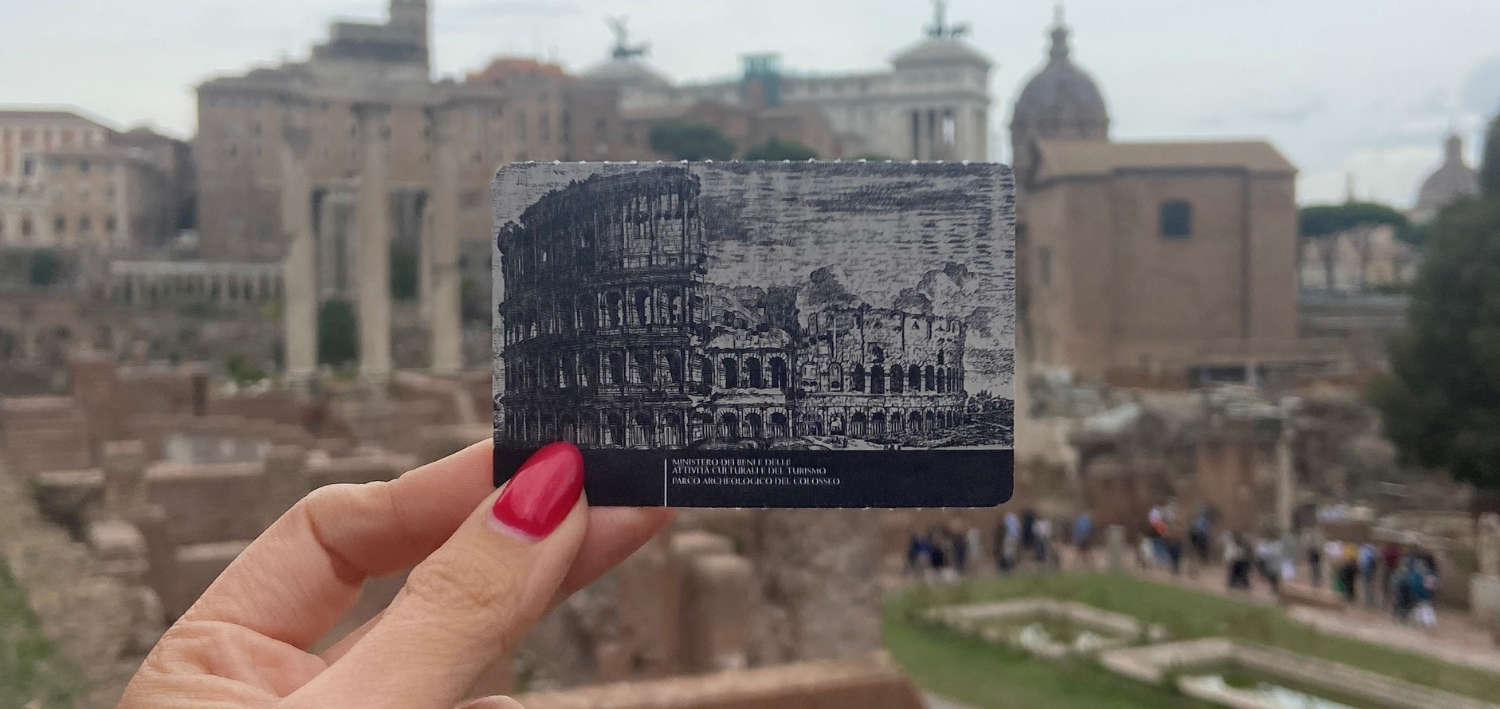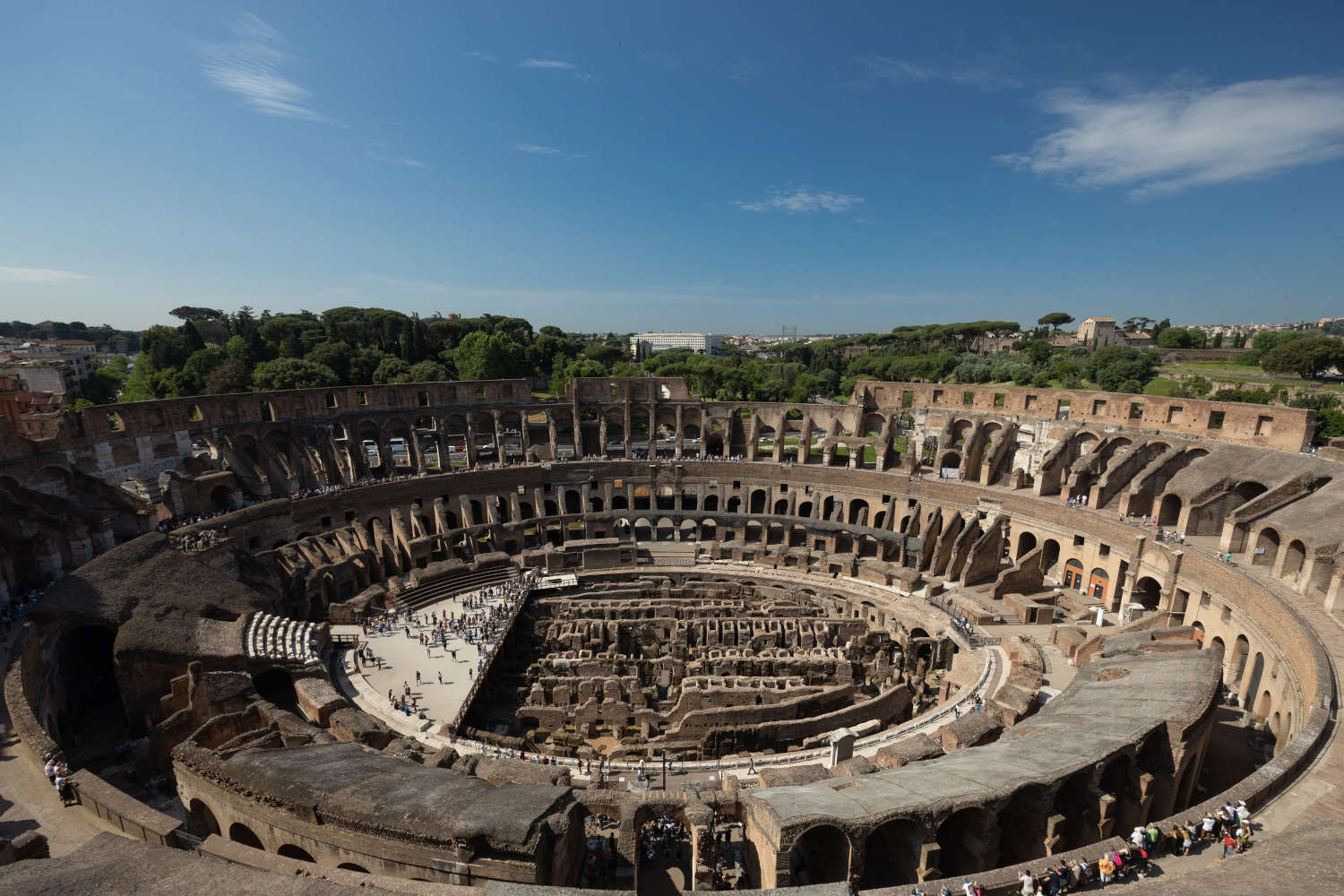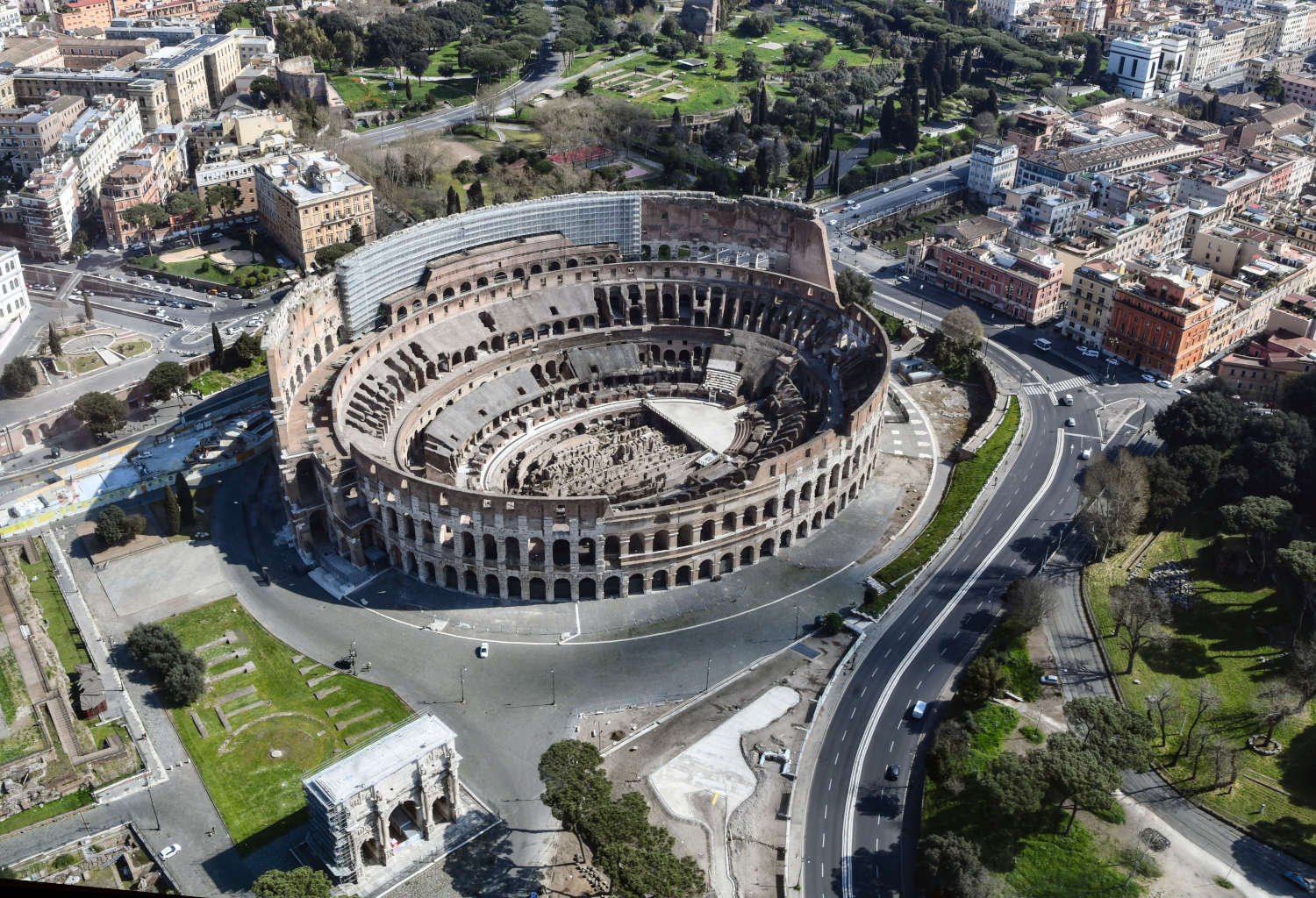The climate at the Colosseum continues to be “hot” with controversy. In recent weeks, articles have been coming out voicing the discontent of various agencies and tour operators regarding the named ticket introduced at the Colosseum Park as of last October 18. Let us try to analyze the situation. The named ticket undoubtedly has disadvantages, both for operators and visitors, in that it is a limitation on the ability to use the ticket as one wishes. On the other hand, it is a price to pay to combat the hoarding of tickets and subsequent inability to find them at regular prices that have bedeviled 2023. The lack of tickets has affected and hurt not only the public but also those in the industry, particularly the small and medium-sized agencies that make up the economic fabric of the Italian tourism sector, as opposed to a few agencies/tour operators that have been hoarding tickets and are almost always fiscally based abroad.
The main reason given officially by those who are currently contesting the current regulations is that many tickets remain unused, either because some people originally booked can no longer go or because sometimes the names are misspelled. Granted that the numbers of unused tickets written in some newspaper are completely hypothetical and to be proven, in the management of a monument one must look first and foremost to the public good, that is, to the interests of both the state and the majority of visitors. Individual cases cannot be taken into account. An average of 25,000 people a day enter the Colosseum; it is absurd to think of changing everyone’s rules because of the few who cannot go because of a stomach ache or other individual problems. On the other hand, in the travel business - airline tickets, hotel rooms, trains, etc. - it often happens that you lose your money and the very service you booked, if for any reason you have to give up.

At the moment, the priority is to make sure that on the public platform everyone can find available tickets for the Colosseum; we do not demand until the same day or the day before as was the case until 2019, but at least until a few days before. I am not a fan of the named ticket, in fact: I was originally really against it. And none of us like wasting time writing down names, risking the customer not getting in because they forget their ID, or standing in half-hour lines because of the controls. However, if this can counter hoarding and can restore ticket availability for everyone, I accept it and fight to enforce it.
To leave the named ticket but “water it down” with bland rules is to nullify its full potential and effectiveness. In fact, to allow tour operators to change the call sign up to 24-12 hours in advance and to carry out only spot checks on the monument (these are the demands of those who challenge the current organization) is to again give wide latitude to those who tend to hoard. Because the individuals who buy thousands of tickets a day, taking them away from everyone else, work mainly on the “empty-for-full” system, so the more time they have to change names the more chances they have to sell on the platforms and the more tickets they will take. In fact, the main reason why some people, including those with big interests, are calling for rule changes is actually to sell more.
To say, as some have done, that the ban on name changes the day before prevents many operators from working is false. For example, those who operate cruises, which move huge numbers, have always claimed to sell tours up to the day before, but this is a claim to sell more and to favor their customers. Cruise passengers can buy tours from the time they book the trip, so they have months to book tours including the one at the Colosseum; why should they have tickets available until the day before while a private individual cannot even find them 2 months before? Pretending to sell tours until the last is a legitimate desire on the part of those companies, but it is not a right that is worth more than the right of small agencies to find tickets so that they too can work and the right of individual visitors to buy tickets themselves without resorting to resale platforms at premium prices.
However, this does not mean that everything is fine now; on the contrary. At this time we are in a time of transition between the old concessionaire and the new manager; this is definitely the most difficult time of the side-by-side. The Park Management already announced last December the changes that will be in effect as of May 1: they seemed very good to us and give hope for an improvement of the whole organization. From May both agencies and individuals will be able to change names, although precisely not at the last moment. All this, however, will be seen in the summer.
And it is true that the system was introduced too quickly, when from a technical point of view they were not prepared for such a change, neither for the platform nor for the personnel available on site. The introduction of named tickets, planned by the Colosseum Management since the CONSIP call for tenders, thus not decided on the basis of the problems of the last year, could have been introduced at the same time as the new manager, from May 1. Perhaps it was hastily brought forward by the minister’s decision, under pressure from the many controversies and criticisms that appeared in the newspapers last summer because of the lack of tickets; criticisms that were also made by me and our association and which we do not regret, because the situation was untenable. However, let’s say that to counter it on the spot perhaps it would have been better to implement different measures, instead of introducing the name calling without the proper structure and with minimal notice.


The problems due to the call sign are there and they are for everyone. First of all, the lines. It is low season now, yet we have seen several times long lines to enter both the Colosseum and the Roman Forum because of the many controls. It is unthinkable to face the next high season in the same way, because the lines would be terrible and also under the sun. If the Colosseum management does not put in place a different organization of entrances and controls, it will be hell in June. If the controls are important to prevent some people from cheating on the naming problem, then it is necessary to open at least one more entrance and greatly increase the control staff, but also to rationalize the control system so as not to waste time and energy.
From this point of view, in our opinion it is completely unnecessary to force visitors even to long lines to enter the Roman Forum and the Palatine: these two sites have never had quota problems (they are not “number closed” like the Colosseum) and they are not even the object of contention. It is at the Colosseum that named-ticket controls should be put in place. Why complicate everything by having the controls at the other two sites as well?
Second, clarity to the user. Currently when you buy a ticket you read no warning that the call sign cannot be changed and that if the name does not match the document you will not be allowed in. This is basic information that the buyer has the right to read, before purchase; and it should be written clearly, to avoid misunderstandings and discussions.
For operators, too, the situation at the moment lends itself to controversy and discontent: while accredited agencies buying on the platform reserved for them can change names up to a few days before, those buying on the “public” platform cannot change them; exceptions are made, however, upon request, but as if it were a concession, and in any case only by e-mail. It can’t work that way: either you can change them or you can’t. And it needs to be clarified officially, to give everyone the opportunity to do so, not just those who know from hearsay.
The named ticket will only prove to be a winner if tickets are found in peak season. Now there is no demand. The litmus test will be availability from the Easter period. And we are saying right now that if the introduction of the name tag does not produce significant results in the high season, then it will be better to remove it because there is no point in taking the disadvantages of a norm if it does not also bring positive results. The Park Management and the new manager have a few months to reorganize the reception and controls and also to improve the system of name-selling. We all hope that this huge effort will succeed. And we credit the Park Management with great courage for the choices they have made that will be visible from May, because it is much easier to hand everything over to a concessionaire and wash your hands of it. Controlling and dictating the rules indicates an institution’s willingness to regain control of a public asset and act in the interest of all possible visitors. On the part of us operators and professionals, we all have to accept the idea of giving up something if we want the situation to be good again.
The author of this article: Isabella Ruggiero
Presidente AGTA - Associazione Guide Turistiche AbilitateWarning: the translation into English of the original Italian article was created using automatic tools. We undertake to review all articles, but we do not guarantee the total absence of inaccuracies in the translation due to the program. You can find the original by clicking on the ITA button. If you find any mistake,please contact us.